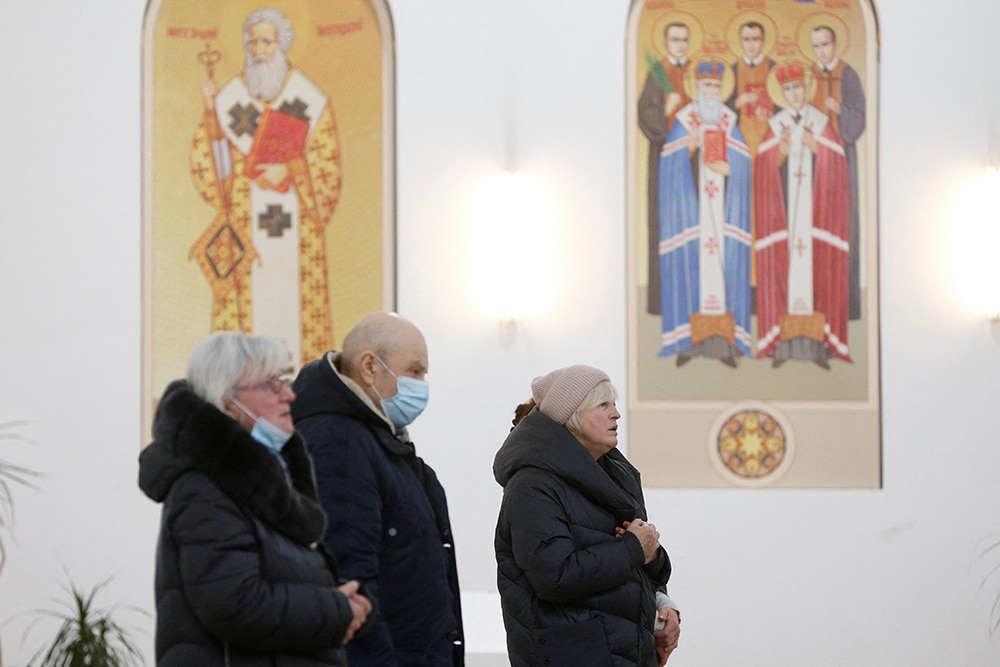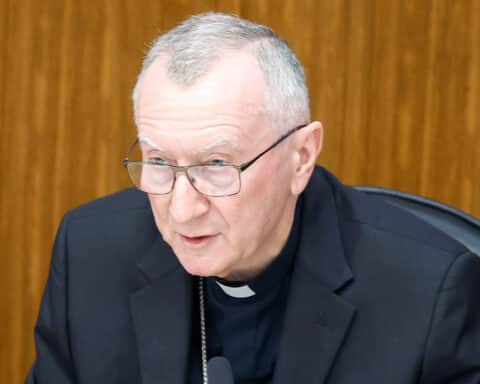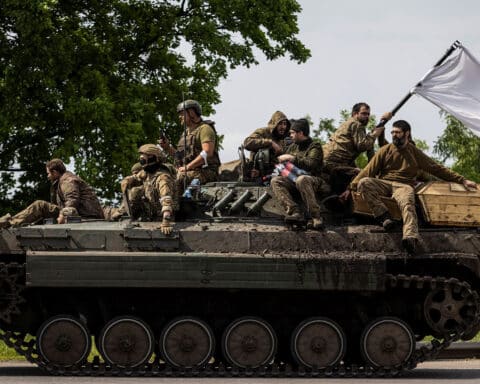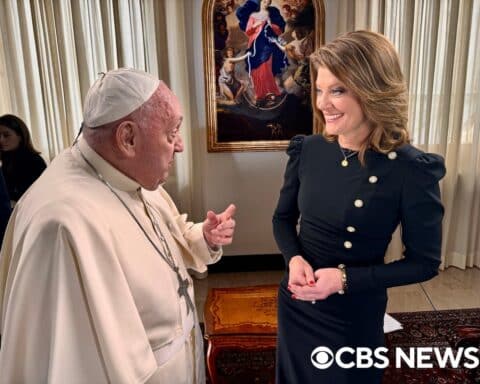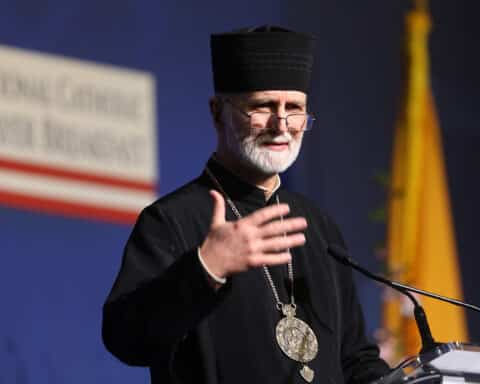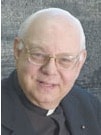
Based on a novel by Morris West, it follows this story. Fictional Archbishop Kiril Lakota, in the then Soviet Union, is arrested in a clampdown on religion by Communist officials. Sentenced to hard labor in Siberia, he spends years experiencing and seeing fearful brutality, finally is released and finds sanctuary in Rome, where the pope immediately names him a cardinal.
The pope dies. Lakota is elected to succeed him. As pope, he averts a nuclear confrontation involving China and Russia, both set on their self-interests.
Lakota is not identified as Ukrainian, but he is not depicted as being of the Roman rite.
While the book and the movie were fiction, reviews said “The Shoes of the Fisherman” had, at least in part, a real-life case behind it.
In 1963, with news electrifying the Catholic world, the Soviet government had released from a work camp in Siberia Archbishop Josyf Slipyj, a Ukrainian, whom the communists had imprisoned for almost 20 years. Given sanctuary in the Vatican, he arrived in Rome, and Pope St. Paul VI named him a cardinal.
Cardinal Slipyj died in 1984. Unlike the character in the book and the movie, he never was elected pope, but the novel, the film and the actual plight of Cardinal Slipyj reveal the persecution undergone by untold hundreds of thousands, even millions, of Ukrainians, for centuries, to keep their Christian faith.
Christianity came to Ukraine before A.D. 1000. Today, many Ukrainians are Orthodox Christians, some Jews, some Muslims, and about 5 million are Catholics — 20% of the total population, forming the largest Eastern Catholic community in the Church.
Catholicism is practiced according to its own rite and customs — not Roman, not Latin. This has been a problem on occasion for Ukrainian American Catholics. Catholics of the Roman rite in this country were not always cordial.
For many long years, Ukraine was under Russia’s heel. The Romanov czars were bad enough, but then came the communists. Both the czars, who professed Christianity, and the communists, who were atheists, tried to separate Ukrainian Catholicism from the papacy. Cardinal Slipyj was a victim of this effort.
For five years, midway in the 20th century, Ukraine endured unspeakable horrors at the hands of German invaders loyal to Adolf Hitler.
Political oppression is not a fact in the Western democracies, but current culture is hostile to Christ, in so many respects. Tough talk, but in reality, every Catholic needs to reinforce his or her resolve. Remember the strength of martyrs, those slaughtered and those who lived martyrdom.
Two common denominators exist in Ukrainian history: religious persecution and, as often, the struggle to maintain identity. Blended into the mix almost always has been politics, often the international balance of power and Russian desires to rule Ukraine.
Ukraine is a sovereign, independent state, its own society, with its own language, traditions and its rich culture, a major part of which is its Christianity.
While at the time Ukraine was part of the Soviet Union, Josef Stalin, the communist dictator, had to admit that Ukraine was separate and unique. In 1945, when the United Nations formed, Stalin demanded that Ukraine be granted membership in the body as a full-fledged separate nation. The rest of the world’s powers agreed.
Peace is the goal, but not at any price. Peace will be counterfeit if not based upon justice and regard for Ukrainian individuality and rights.
Current tensions surrounding Ukraine are serious, as every world leader acknowledges. Politics compounds present tensions, which could erupt into war and draw into the hostilities every American. Remember history? Pearl Harbor? Korea? Vietnam? Iraq? Afghanistan?
Pope Francis’ appealed for peace, and for prayers for peace, with good cause.
Msgr. Owen F. Campion is OSV’s chaplain.

